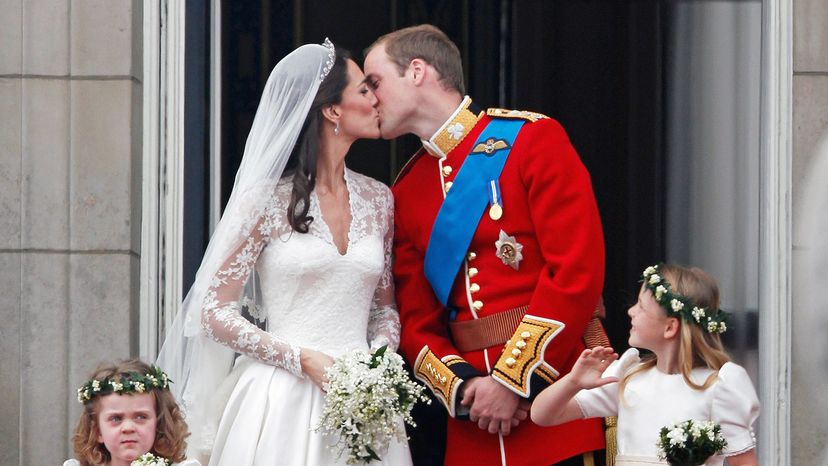
Rick and Ilsa in "Casablanca." Wills and Kate on their wedding day. The "Kissing Sailor" in Times Square on V-J Day. Iconic kisses all around. Now imagine all of those beautiful people locking lips with their eyes wide open. Intensely creepy mental images, right?
There's a reason the thought of kissing with your eyes peeled immediately makes you cringe (aside from the disturbingly close view of another human's facial features). Or at least there's a possible reason, rooted in a 2016 study from Holloway University of London. When the paper was published in the Journal of Experimental Psychology: Human Perception and Performance, media outlets quickly extrapolated the results to the world of make-outs (because, sure, why not). Some science writers were quick to point out that the original study made no mention of kissing, but see for yourself if the findings make sense in the context of swapping spit.
Advertisement
For the study, psychologists Polly Dalton and Dr. Sandra Murphy fitted participants' hands with small devices that emitted light vibrations. While wearing the devices, the participants were then tasked with completing both mental and visual tasks involving a letter search, and had to simultaneously report on the presence or absence of the vibrations. The researchers found that when participants were asked to complete more demanding visual tasks, they were far less sensitive to the vibrations.
Again, the study itself wasn't intended as an investigation of kissing etiquette, but it does make sense why people eagerly adapted the results that way. Kissing is inherently intimate and clearly physical — for the brain to fully appreciate the intensity and sensation, the eyes would have to be shut to focus all the attention on the very visceral experience. As Dalton told The Independent, "These results could explain why we close our eyes when we want to focus attention on another sense. Shutting out the visual input leaves more mental resources to focus on other aspects of our experience."
Of course, she was more likely referencing drivers' inability to perceive a vehicle's tactile drifting lane alerts when engaged in demanding visual tasks, but ... that's kind of romantic in its own way, isn't it?
Advertisement

